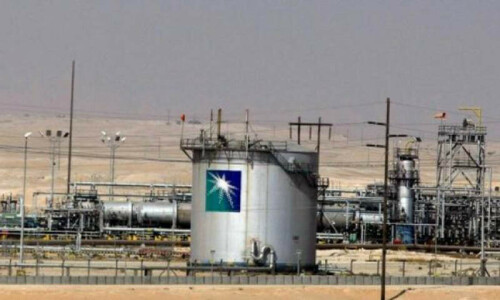ISLAMABAD: Pakistan’s economic growth is projected to remain below potential, averaging 1.3 per cent for 2021-22, says a new World Bank report released on Tuesday.
This base-line projection, which is highly uncertain, is predicted on the absence of significant infection flare-ups or subsequent waves that would require further widespread lockdowns, according to the “South Asia Economic Focus: Beaten or Broken, Informality and Covid-19”.
The report says the current account deficit (CAD) is expected to widen to an average of 1.5pc of GDP over 2021-22, with imports and exports gradually picking up as domestic demand and global conditions improve.
The fiscal deficit is projected to narrow to 7.4pc in FY22, with the resumption of fiscal consolidation and stronger revenue driven by recovering economic activity and critical structural reforms.
On the other hand, expenditures will remain substantial due to sizeable interest payments, a rising salary and pension bill, and absorption of energy state-owned enterprise (SOE) guaranteed debt by the government, the report says.
Given anemic growth projections in the near term, poverty is expected to worsen, and vulnerable households rely on jobs in the services sector, and the projected weak services growth is likely to be insufficient to reverse the higher poverty rates precipitated by the pandemic.
About risks and challenges, the report says there are considerable downside risks to the outlook with the most significant being a possible resurgence of the infection, triggering a new wave of global and or domestic lockdowns and further delaying the implementation of crucial structural reforms.
Locust attacks and heavy monsoon rains could lead to widespread crop damage, food insecurity and inflationary pressures, and livelihoods for households dependent primarily on agriculture could also be negatively impacted.
Finally, external financing risks could be compounded by difficulties in rolling-over bilateral debt from non-traditional donors and tighter international financing conditions, report says.
Published in Dawn, March 10th, 2021












































